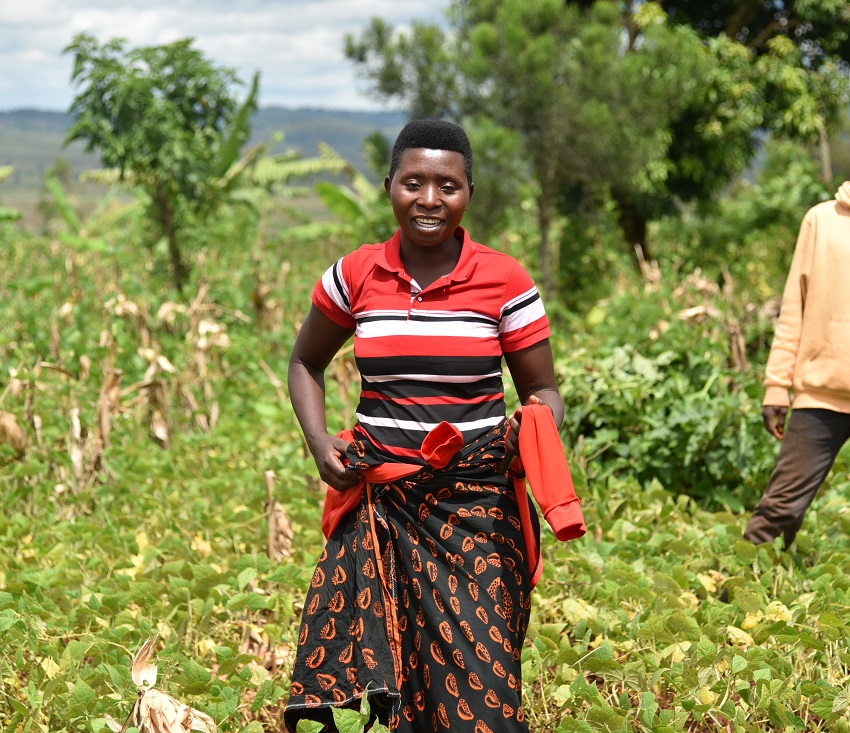Striving towards gender equality in the fight against hunger
Women and girls are disproportionately affected by hunger due to poverty, especially those living in countries without strong safety nets.
In Sub-Saharan Africa, two-thirds of people working in agrifood systems are women. In Asia, these figures are even higher – 71 per cent of people working in agrifood systems are women. Yet globally, women earning an income from agriculture earn 82 cents for every dollar that men earn.
And according to The Status of Women in Agrifood Systems 2023 report published by the UN Food and Agriculture Organization, closing the gender gap in agriculture could reduce global food insecurity for up to 45 million people.
Food security cannot be achieved without food justice. That’s why we’re grateful to be working through local partners who implement programming which reflects the reality of their communities’ context.
In Burundi, our member Canadian Lutheran World Relief is working with their partner Lutheran World Federation Burundi to close the gender gap for local food producers.
Watch this video to hear the story of Burundi farmer Nkezimana Iphigénie, and how she has changed the way she raises her children as a result of the training implemented by LWF:
The three-year agriculture and livelihoods project implemented by LWF started with food assistance, as part of the Humanitarian, Early Recovery and Development program.
Supported by the Government of Canada, the implementation of HERD in Burundi is focused on responding to the needs of internally displaced people, returnees and vulnerable host community households who are experiencing food insecurity. The project provides food vouchers, organizes farmer field schools and cooperatives, develops community assets (like improving roads and markets) through cash-for-work initiatives, and organizes village savings and loans associations.

A few years ago, Burundi farmer Nkezimana Iphigénie fled to Tanzania, escaping violent conflict in her home country. She returned five years later when conflict was no longer a threat to her livelihood. With the assistance of local partner Lutheran World Federation Burundi, Nkezimana has been able to join a farmer field school, feed her children and send them to school, and shared her story with us in the video above. (Photo: Maya Masengi)
In contexts where men and women are not afforded the same rights, working towards the dismantling of gender inequalities so that in communities impacted by hunger, men and women are viewed as equal, can make a huge difference for the food security of an entire community.
This project aims to reach and benefit 1,200 households, including about 6,900 people.
To learn more about our members’ programming around the world, click here to view our project map.